
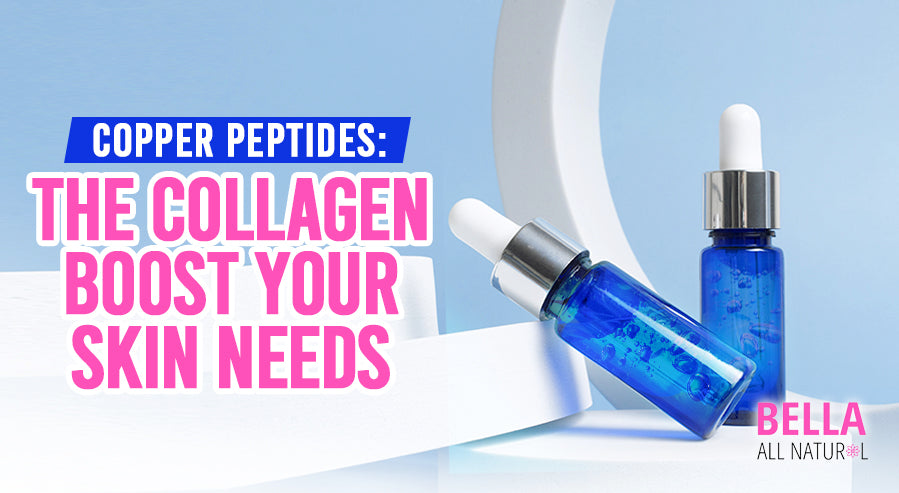
Our skin is made from various compounds that comprise the whole and are essential for our skin to form. Many of these compounds are naturally produced by our bodies, while we must consume others to keep a healthy amount. Some of the components used in our skin are easier to come by than others, but proper diet and skincare routines can overcome deficiencies.
The problem is that it can be difficult to identify which component your skin needs to be healthy again. Perhaps the most important component used in human skin is collagen, a protein we initially acquired in the womb, so we create our first layers of skin. We continue producing collagen in later life, but the problem is that the quality of collagen production deteriorates with age.
Over time, we produce less collagen, and our ability to repair our skin becomes more difficult since we lack the resources necessary to replenish our skin. Some people use collagen supplements to enhance their levels, but certain compounds offer indirect benefits.
Collagen, like most proteins, is made up of smaller molecules that create the whole, and increasing the content of these additional molecules gives the body the necessary resources to make more collagen. One surprising source of collagen molecules might be copper, primarily seen as a metal used to make pennies and other products. You might not know that our bodies can absorb copper, a mineral we need to stay healthy.
What is Copper?
This question might seem silly, considering copper is commonly used in several items and products that use it decoratively or conductivity. Most people do not know that copper is a mineral that plays a role in our health, and low copper levels are detrimental.
Copper is essential for multiple bodily functions regardless of who you are, and deficiencies reduce their efficacy. Copper's role in the body contributes to health and cosmetic functions, including cardiovascular health, immune function, and collagen production. The exact function of copper in these functions varies, but it is important to all of them and more, even protecting against other health issues.

Our protection against these issues diminishes without proper copper levels, and our overall health suffers. The good news is that copper deficiencies are rare and unlikely to affect the average person, but certain conditions and circumstances increase the risk for certain people. These risk factors include:
- Genetics: Some people are genetically predisposed to copper deficiencies inherited from one or both parents. If your parent had a deficiency or suffered genetic damage, it could translate into genetic damage for you once you are born.
- Absorption Issues: Some people struggle to process certain foods and have an adverse reaction (i.e., lactose intolerance preventing safe dairy consumption). Similarly, some people have metabolic issues that prevent their bodies from absorbing copper properly. This makes it harder for the body to take advantage of copper's benefits and could cause health issues unless copper intake increases.
- Vitamin Oversaturation: Most substances struggle to synergize due to conflicting natures. As a result, an overabundance of certain vitamins or minerals can make it difficult for copper to function. Specifically, excess concentrations of vitamin C or zinc can overpower any copper in your system.
- Medical Conditions: While genetic factors and mineral excess are major factors, an underlying medical issue is one of the more common reasons for copper deficiencies. Several health conditions increase the risk of a copper deficiency.
Our copper stores are in the liver, meaning deficiencies take a long time to develop and are hard to detect ahead of time. Unfortunately, the consequences of a copper deficiency can be devastating or, at the very least, detrimental to our self-esteem. While several health reasons exist for keeping your copper concentrations high, we will leave such conversation to your primary care physician. The question of concern right now is how copper supplementation affects your body's collagen production and improves skin quality.
What Role Does Copper Play in Collagen Production?
Copper is one of the essential nutrients for the human body, but the leap between general health and skin production is substantial. Understandably, you might doubt the effect copper has on collagen production, especially since it is difficult to look past its status as a metal. Nevertheless, it can stimulate collagen production since it is one of our bodies' ingredients to produce it.
The copper in our bodies is a peptide, an amino acid that naturally occurs in most organic life and directly facilitates collagen and elastin production (elastin is another type of connective tissue). Collagen and elastin create a firm, smooth skin that makes up most of our complexion. Without these proteins, our skin would look wrinkled and flawed from birth (assuming it formed). Over time, our bodies gradually lose the ability to use peptides to produce elastin and collagen, reducing our skin quality and making it harder to maintain our ideal complexions.
Adding certain peptides to your supplement regimen can be extraordinarily helpful in revitalizing your collagen production. The trick is determining which peptides are most effective for collagen synthesis since the protein is more complicated than you might think.
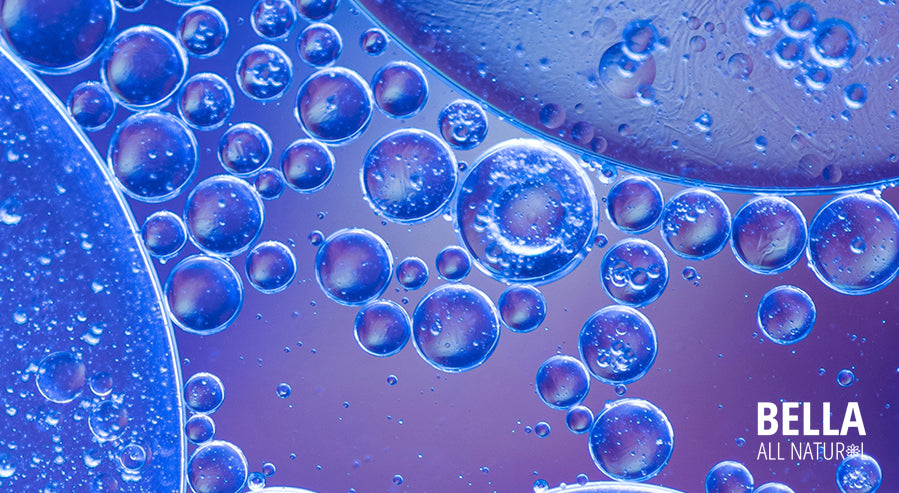
Copper peptides, in particular, have been scientifically linked to collagen and elastin synthesis, making them a major power in modern skincare. According to research, copper is connected to an enzyme called lysyl oxidase, which catalyzes collagen and elastin synthesis when combined with copper peptides.
Like collagen, we naturally produce lysyl oxidase, but it is one of those aspects of our biology that is often overlooked due to how deep in the body the process occurs. Nevertheless, research has shown that copper peptides, when catalyzed by this enzyme, improve collagen synthesis and provide the body with the resources it needs to repair the skin.
Understanding copper's role in collagen synthesis is important but ultimately useless unless you know what improved collagen synthesis offers. You might have heard about collagen being used in skincare and hair care, but you might not know what issues it is used to resolve. Fortunately, that information is far from hidden.
Copper Peptides Improve Skin Firmness
As mentioned, firmer skin is one of the main advantages of improved collagen synthesis, but you might wonder what that means. It is no secret that, as we age, our bodies show signs of how long we have been alive. Skin blemishes associated with age are an inescapable part of the human experience that many want to avoid for as long as possible. While it cannot be stopped outright, staving it off with a skincare regimen using the right tools is possible.
Collagen has been linked to treating signs of aging because that was part of the job for most of our lives. Humans continuously produce collagen to rejuvenate the skin and restore it after injury. This two-fold effect prevents wrinkles or other age-related blemishes and keeps our skin taut. Additionally, it minimizes the severity of any scarring or lingering signs of injuries we might have sustained.
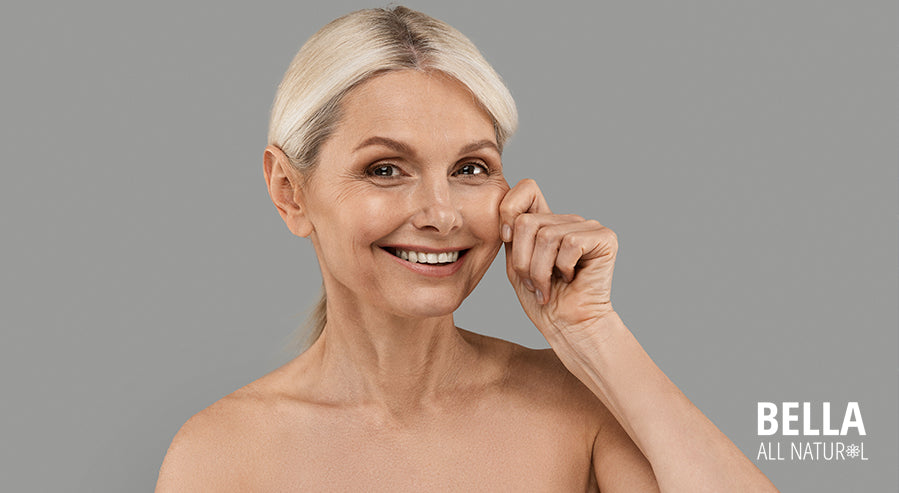
Unfortunately, the signs of aging we are so keen to avoid are caused by the deterioration of collagen in our bodies. As we get older, we produce less collagen, and the little we have loses its potency much faster than it used to. As a result, our skin is not repaired as effectively since the collagen we retain must be prioritized for healing major damage rather than minor cosmetic issues.
However, a 2015 study connected copper peptides to enhanced skin firmness and reduced wrinkles. The effect copper peptides had on our skin was directly connected to how the peptides promoted collagen synthesis in the body and gave us more to use for "low-priority issues." Fortunately, copper's benefits for our skin do not end with keeping the skin smooth and firm; other blemishes can be healed by how copper promotes collagen production.
Copper Peptides Evens Skin Tone
Another common skin problem is when the tone is not even across our entire complexion, usually due to some environmental factor that triggered melanin production or minor injuries. Anyone who has spent time in the sun or gone through puberty has experienced changes in their skin that affect color.
Sometimes, people actively try to cultivate a darker skin tone via sun tanning (despite it being very unhealthy due to UV radiation). Nevertheless, people still spend hours in the sun trying to darken their skin over the concept of attractiveness. Others face a more frustrating issue when their skin begins generating aggressive acne that is painful, bright red, and leaves deep marks on the skin after fading. Acne scars are a common issue for anyone who suffers severe acne breakouts and can cause their complexions to remain blemished long after the pimple fades.
Interestingly, copper seems to correct most complexion issues caused by discoloration, acne scars, and other issues that disrupt skin tone. It is hypothesized that copper purges damaged connective tissue and helps synthesize healthy replacements. The latter half of the theory seems accurate since copper peptides are used to promote collagen and elastin synthesis.
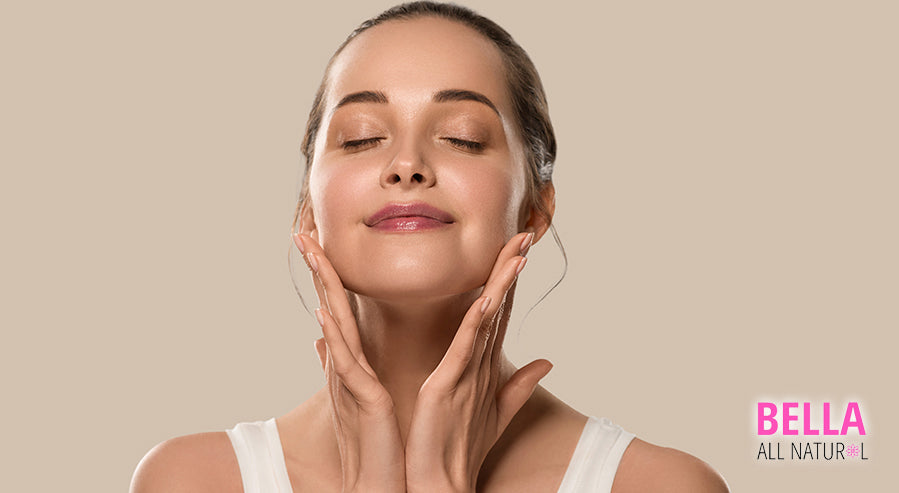
Copper does help create new connective tissue that can repair damaged skin, but there are questions about whether collagen or elastin can correct tone issues. Once again, this appears to be accurate following a study from last year that assessed collagen's effect on hyperpigmentation.
Hyperpigmentation is a condition in which our bodies overproduce the pigment melanin and cause patches of our skin to appear darker than the rest of our complexion. Often, hyperpigmentation is a precursor to a more serious condition like cancer since it proves we have been exposed to high levels of UV radiation.
The study showed that increased collagen peptide concentrations caused the test group subjects to lose excess pigmentation. This helped even out their complexions and made them as uniform as possible (hyperpigmentation is impossible to reverse completely, but treatment can make the pigment less noticeable).
These results cemented collagen as a potential resource for treating hyperpigmentation and demonstrated its potential for other forms of discoloration. Adding copper to your regimen gives your body the power to produce collagen, but finding ways to introduce copper might be challenging.
How to Add Copper to Your Diet
Adding copper to your diet can be difficult since it means taking supplements that might not taste the most pleasant. Fortunately, there are natural sources of copper that help you get all the benefits with less of a bad flavor. There is a fruit harvested from Annona muricata, a type of evergreen tree native to the Americas.
This fruit, known as soursop, contains several nutrients that are highly beneficial to our bodies. Among the nutrients in soursop fruits is a concentration of copper that stays within the recommended daily intake. According to the Department of Health and Human Services, we should not consume more than 900 micrograms (0.9 milligrams) of copper daily. A 100-gram serving of soursop fruit only has 86 micrograms (0.086 milligrams), whereas the entire fruit has 537 micrograms (0.537 milligrams). Therefore, we could safely eat an entire soursop (which tastes far better) without overdosing on copper peptides.
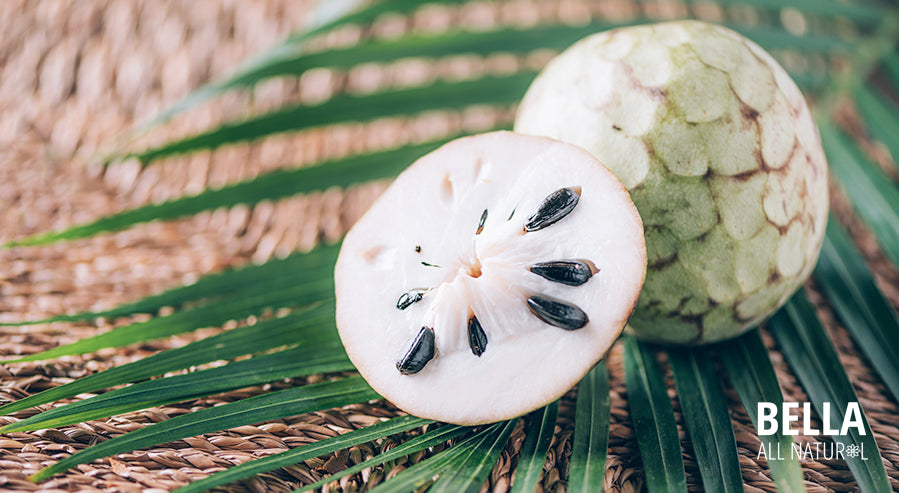
The best course of action is to find a supplement made from soursop to get the best effects. Alternatively, you could skip the copper entirely and get a collagen supplement, but that might not be for everyone. The challenge is finding a reliable vendor that has the supplement you need.
Keep it All Natural!
Collagen is one of the most important proteins in the human body but does not have a long lifespan. Adding copper to our diets gives our bodies the raw resources they need to produce more and maximize the benefits for our skin. The problem is that copper supplements are unpleasant to consume and hard to come by. Soursop supplements are more palatable (as are collagen supplements) but are harder to come by than copper supplements since you need a naturalistic vendor.

We at Bella All Natural have always believed that the best resources in life come from nature, which is why we have a catalog of natural beauty products. If you want to enhance your copper content with something slightly less bitter, our Guanabana Capsules (made with soursop) will ensure you get the copper you need. Alternatively, we also have Collagen Powder that you can use to skip the middleman. Either of these products can help rejuvenate the skin, and the choice of which one you want is yours to make. Regardless of your decision, remember to always keep it All Natural!



